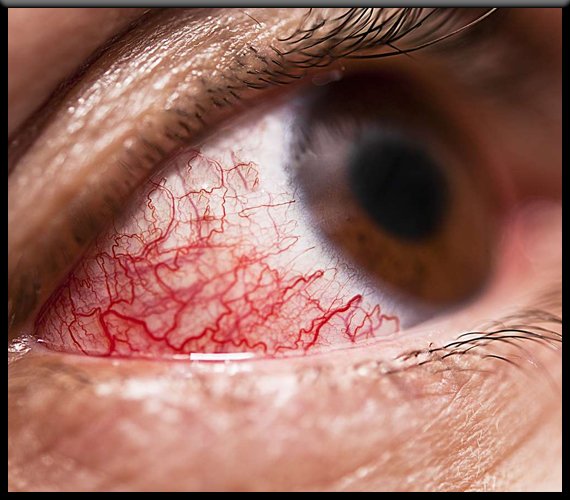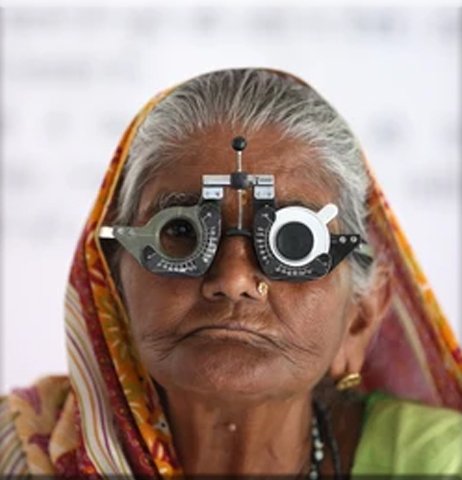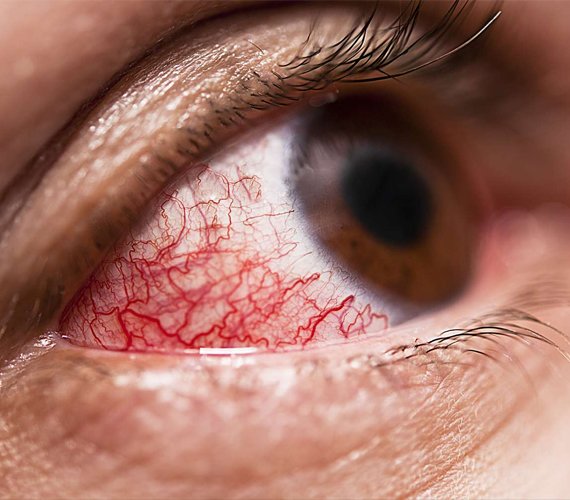

What causes the inflammation of the eye?
Inflammation of the eye, medically termed as "uveitis," encompasses a diverse array of conditions characterized by inflammation affecting the uvea—the middle layer of the eye wall—comprising the iris, ciliary body, and choroid. While the exact cause of uveitis varies, it commonly results from immune system dysregulation, infections, or underlying systemic diseases.
Immune-mediated mechanisms play a significant role in uveitis. The immune system normally functions to protect the body from foreign invaders, but in uveitis, it can mistakenly target healthy eye tissues, triggering inflammation. Autoimmune disorders like rheumatoid arthritis, lupus, or ankylosing spondylitis often accompany uveitis, reflecting the immune system's overactivity. In these cases, the immune system erroneously recognizes self-antigens within the eye as foreign, leading to inflammation.
Infectious agents, including bacteria, viruses, fungi, and parasites, can also incite uveitis. Bacterial infections like tuberculosis or syphilis can directly invade the eye or induce an immune response, resulting in inflammation. Viral infections such as herpes simplex or cytomegalovirus can remain dormant in the body and reactivate, causing uveitis episodes. Fungal and parasitic infections, though less common, can also provoke inflammation, especially in individuals with compromised immune systems.
Environmental factors may contribute to uveitis development, particularly in susceptible individuals. Exposure to toxins, allergens, or irritants can trigger an inflammatory response in the eye. For instance, exposure to certain chemicals or allergens in the workplace or during recreational activities may precipitate uveitis in genetically predisposed individuals.
Genetic predisposition plays a crucial role in some forms of uveitis. Certain genetic variations can increase susceptibility to inflammatory conditions, including those affecting the eye. Family history of uveitis or related autoimmune diseases may elevate the risk of developing uveitis.
Trauma or injury to the eye can lead to inflammation, either directly by causing tissue damage or indirectly by disrupting the eye's delicate balance and triggering an immune response. Physical trauma, such as a penetrating injury or blunt force trauma, can introduce foreign material or disrupt the eye's structural integrity, prompting inflammation.
Moreover, systemic diseases like sarcoidosis, Behçet's disease, or Vogt-Koyanagi-Harada syndrome can manifest with uveitis as part of their clinical spectrum. These conditions involve systemic inflammation that can extend to the eye, resulting in uveitis.
inflammation of the eye, or uveitis, can arise from a myriad of causes, including immune system dysregulation, infections, environmental factors, genetic predisposition, trauma, and underlying systemic diseases. Understanding the underlying cause is crucial for appropriate management and treatment of uveitis, as it often requires a multidisciplinary approach involving ophthalmologists, rheumatologists, infectious disease specialists, and other healthcare providers.



Frequently Asked Questions
Choose Jain Eye Hospital for expert eye care. With cutting-edge technology and compassionate specialists, we ensure optimal vision health for you and your loved ones.
Over time, cataracts will harm your vision. Cataract surgery can bring back your vision. However, a possible complication of cataract surgery is an "after-cataract." An "after-cataract" happens when part of the natural lens that is purposely not taken out during cataract surgery becomes cloudy and blurs your eyesight.
How painful is cataract surgery? Most people feel little or no pain during or after cataract surgery. You'll receive a topical anesthetic (eye drops) to numb your eye during the surgery. Shortly after surgery, your eye may feel gritty or slightly tender, but over-the-counter pain medicine should improve this.
Many factors can induce inflammation of ocular surface, including DED, pathogens, and allergic reactions. Acute inflammation is usually beneficial, as it promotes the process of healing. But chronic inflammation may result in cell damage or even cell death.
Diagnosis and treatment of inflammatory eye diseases are important. They can cause permanent damage to the eyes and vision loss that cannot be reversed. If you notice any of the signs or symptoms of inflammatory eye disease, make an appointment to see your eye doctor right away for a complete eye exam.
We are the best
Welcome to Jain Eye Hospital, where your vision is our priority. With a legacy of excellence spanning over three decades, we are committed to providing world-class eye care services with compassion, expertise, and cutting-edge technology.
- expert in eye care.
- State-of-the-art facilities.
- Comprehensive services.
- Patient-centered approach.
Our Services


Diabetic Retinopathy Management
Such as photocoagulation or panretinal photocoagulation, halts blood and fluid leakage and shrinks abnormal vessels in the eye.
Read More
Ocular Inflammation
Ocular inflammation is inflammation of the eye, which can be caused by many factors, including pathogens, allergic reactions, and DED.
Read More
Visual Field Analysis
A visual field test, also known as a perimetry test, is a painless eye exam that measures the area of vision and how sensitive it is in different parts.It can detect blind spots in your vision.
Read MoreWe are available 24/7
We are Always Ready For A Challenge.
Satisfied Patients
Patient satisfaction is an attitude. Though it does not ensure that the patient will remain loyal to the doctor or the hospital, it is still a strong.
Awards
Highly skilled medical professionals offering specialized care and advanced treatment modalities.


How do you reduce Ocular Inflammation in the eye?
Ocular inflammation, also known as uveitis, can be a challenging condition to manage, but there are several approaches to reduce inflammation and alleviate symptoms. Treatment depends on the severity and underlying cause of the inflammation. Here are some strategies commonly employed:
Anti-inflammatory Medications: Corticosteroids are often the first line of treatment for ocular inflammation. These medications help reduce swelling, pain, and redness. They can be administered as eye drops, ointments, or injections around the eye. Steroid eye drops are typically used for mild to moderate inflammation, while injections may be necessary for more severe cases.
Nonsteroidal Anti-Inflammatory Drugs (NSAIDs): NSAIDs can also help reduce inflammation and provide pain relief. They work by inhibiting the
production of prostaglandins, which are substances in the body that promote inflammation. NSAIDs are available as eye drops and can be used alone or in combination with corticosteroids.
Immunosuppressive Medications: In cases of severe or chronic inflammation, immunosuppressive drugs may be prescribed to suppress the immune system's response. These medications, such as methotrexate or azathioprine, help prevent the immune system from attacking the eye tissues. They are typically used when corticosteroids alone are ineffective or cause significant side effects.
Biologic Agents: Biologic therapies target specific molecules involved in the inflammatory process. Drugs like adalimumab or infliximab can be effective in treating certain types of uveitis, particularly those associated with autoimmune diseases like rheumatoid arthritis or inflammatory bowel disease.
Antibiotics or Antiviral Medications: If the inflammation is caused by an infection, such as bacterial or viral conjunctivitis, antibiotics or antiviral medications may be prescribed to treat the underlying infection and reduce inflammation.
Lifestyle Modifications: Avoiding triggers that can exacerbate inflammation, such as exposure to allergens or irritants, can help manage symptoms. Additionally, maintaining good eye hygiene, including regular hand washing and avoiding rubbing the eyes, can prevent further irritation.
Surgery: In some cases, surgery may be necessary to address complications of ocular inflammation, such as glaucoma or cataracts. Surgical interventions can help improve vision and reduce intraocular pressure.
Regular Follow-up Care: Monitoring the condition closely with regular eye exams is essential to assess the effectiveness of treatment and detect any complications early. Adjustments to the treatment plan may be necessary based on the individual's response to therapy.
important for individuals with ocular inflammation to work closely with their ophthalmologist to develop a personalized treatment plan tailored to their specific needs and underlying conditions. Early intervention and consistent management are key to reducing inflammation, preventing vision loss, and preserving eye health.


